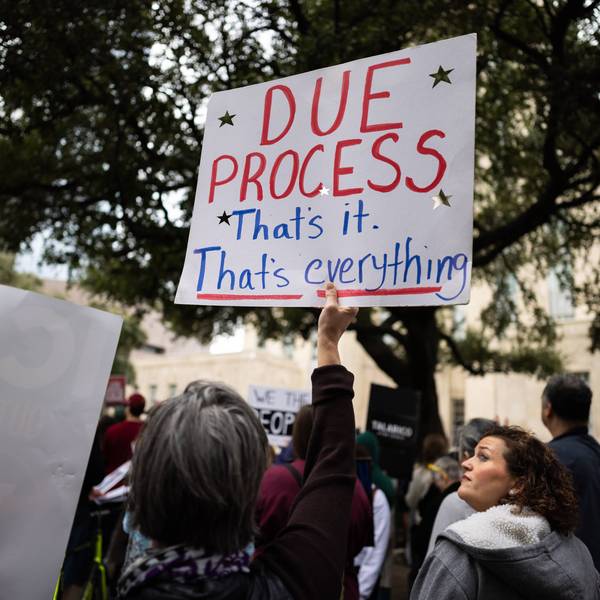The Biden Justice Department on Friday formally appealed a British judge's rejection of the U.S. request to extradite Julian Assange, confirming the new administration's intention to run with its predecessor's espionage charges against the WikiLeaks publisher despite warnings that the case endangers press freedoms around the world.
"Yes, we filed an appeal and we are continuing to pursue extradition," Marc Raimondi, a Justice Department spokesperson, told AFP on Friday, the deadline for the U.S. to appeal Judge Vanessa Baraitser's ruling from last month.
As Common Dreams reported at the time, while Baraitser accepted most of the allegations that the Trump Justice Department leveled against Assange in its 2019 indictment--which charges the WikiLeaks founder with 17 counts of violating the Espionage Act--the judge denied the U.S. extradition request on the grounds that America's brutal prison system would pose a threat to Assange's life.
"The Assange case could allow prosecutors to build criminal cases against journalists who obtain government secrets based on their interactions with their sources."
--James Risen, The Intercept
If extradited to the U.S., Assange could face up to 175 years in a maximum-security prison--conditions under which Assange would likely commit suicide, Baraitser warned in her decision.
"Disappointing that the Biden administration should do this given the chilling effect the ongoing pursuit of Julian Assange will have on press freedom," Stefan Simanowitz, Amnesty International's media manager for Europe, tweeted in response to the Biden administration's appeal.
In anticipation of the DOJ's filing, the Courage Foundation--an organization dedicated to defending whistleblowers--said in a statement Thursday that, if confirmed as Biden's attorney general, Merrick Garland should "take a renewed look at the prosecution" of Assange and "drop the case."
"The Assange case represents the gravest threat to press freedom in a generation," the group said. "It's not about Julian Assange as a person. It's about whether the U.S. government will respect the role journalism plays in democratic life (as a check on powerful institutions)."
The Justice Department's appeal came just days after a coalition of press freedom and human rights organizations including the ACLU, Amnesty International, and PEN America published an open letter urging the Biden administration to drop the case against Assange, whose release of classified documents exposed U.S. war crimes in Iraq and Afghanistan.
"Journalists at major news publications regularly speak with sources, ask for clarification or more documentation, and receive and publish documents the government considers secret," the open letter reads. "In our view, such a precedent in this case could effectively criminalize these common journalistic practices. In addition, some of the charges included in the indictment turn entirely on Mr. Assange's decision to publish classified information."
In a column on Thursday, The Intercept's James Risen similarly warned that "if the Assange prosecution is successful, it will set a dangerous legal standard" and "open the door for the government to prosecute journalists for publishing classified information, even if doing so is in the public interest."
"The Assange case could allow prosecutors to build criminal cases against journalists who obtain government secrets based on their interactions with their sources," Risen wrote. "Investigative reporters throughout the country could face criminal liability simply for meeting with sources and encouraging them to provide information."
"That would make it nearly impossible for reporters to aggressively cover the Pentagon, the CIA, or the National Security Agency," Risen added, "and ultimately imperil the American republic."




